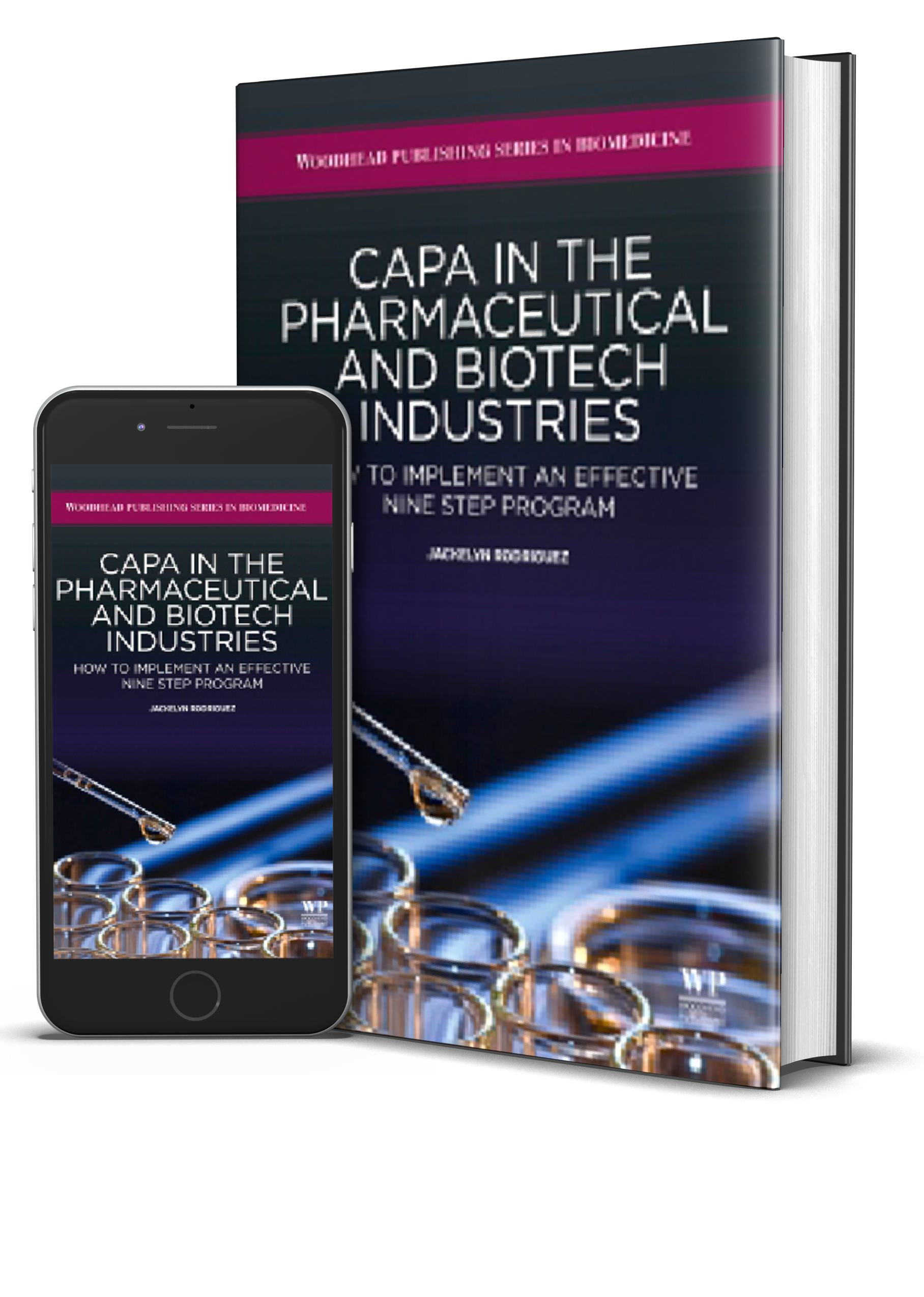
Good Manufacturing Practices Training | A practical approach to understanding GMPS
Course Description - Course runs 9:00 - 5:00 on Day 1 & Day 2 (Breakfast and Lunch Included)
This Good Manufacturing Practices training covers the foundations of the regulations that control the manufacture and distribution of pharmaceutical, biologic and medical devices sold in the United States. Current Good Manufacturing Practices (cGMPs) are defined for all Food and Drug Administration (FDA) Regulated products in Title 21 CFR 210/211. Application of the regulations will be discussed and examples provided throughout the GMP course. Attendees will gain an understanding of how knowledge of the regulations facilitates efficient and cost effective production and problem resolution.
Each section of 21 CFR 211 (Current Good Manufacturing Practices [CGMP] for Finished
Pharmaceuticals) will be covered interspersed with references from 21 CFR 600/610 (Biological
Products: General) and 21 CFR 820 (Quality Systems Regulations). Although CGMP refers to 21
CFR 210/211 the other Parts (600 and 820) rely on Part 211 as well. In addition to the above, ICH,
EU, and other comparisons will be made in order to provide a complete understanding of the regulations.
The GMP course provides a complete overview of the industry requirements as specified by the FDA.
Who Should Attend
This two-day Good Manufacturing Practices training is designed for those who work in a cGMP environment, from beginners to advanced professionals. It is designed for those whose roles and responsibilities require that they understand and apply cGMP quality principles to their job as related to product discovery, development, and/or manufacturing.
The GMP course is designed to help both the "cGMP Intermediate" and the "cGMP Professional" by providing continuity from product development through facility construction and final product release.
Understanding the ‘why' of cGMP principles along with valuable insights and examples that will assist them in their quality decision-making, as well as, demonstrating ways to make their present systems more effective.
This course is also useful for quality assurance and quality control managers, regulatory affairs professionals, auditors, training and production managers, and management interested in effective GMP compliance tools and techniques.
As this course addresses cGMP regulations, attendees working with finished pharmaceuticals, combination products, biological, APIs or devices will gain insight on how to better structure their respective quality systems in order to more effectively manage compliance for multiple products.
Section 1 - Introduction to the Regulations
- What are the GMPs
- Intro to the FDA
Section 2 - Other Regulatory Agencies
- EU and other regulations
- Importance to our manufacturing
Section 3 - Organization and Personnel Roles and Responsibilities
- Department Roles/Functions
- Interactions
- Training
- Change Control
Section 4 - Facilities & Equipment
- Facilities and Equipment – the role they play
- Flows – Material, Air, Personnel
- Lighting, Plumbing, & Containment/Contamination
Section 5 – Vendors and Materials Control
- Classification of materials according to function
- Material specifications
- Vendor Auditing - qualifying, and controlling suppliers and contractors
- Control of incoming materials
Section 6- Process Control: “Master Batch Records and Validation”
- The Validation Master Plan
- Review and Approval of Master Records
- Converting the Master Record to a Batch or History Record
- Predicate rules and Part 11 – What are they really
Section 7 - Packaging and Labeling
- Why is packaging and labeling is so important?
- Controlling Labels and other Printed Materials
- Examining and storing Packaging & Labeling Materials
- Controlling labeling operations
Section 8 - Validation (applying CGMPs)
- Qualification v. Validation
- Protocol Development
- Types of Validation
- Executions
- Final Reports
Section 9 - Laboratory Controls
- Methods Validation Requirements
- Equipment Qualification Requirements
- Equipment Controls
Section 10 - Product Release and Distribution
- QA Responsibilities in Product Release
- Batch Record Review
- Recalls
Section 11 - Records – Reports – Investigations
- Storing Documents and Retains
- When Things Go Wrong
- Getting to the Root Cause
Section 12 – Wrap Up
- Discussion of Hot Topics
- Consent Decree Case Studies
- Questions & Answers
Learning Objectives
All participants will gain a fundamental knowledge of the basis of CGMP regulations, and the necessity of implementing them in daily operations. The course also provides participants with an understanding of common terminology and the role GMPs play in their day-to- day responsibilities.
Focus is given to the regulatory nature of CGMP compliance, managing the implementation of GMP efforts and proactively sustaining a culture of compliance in all scientific and manufacturing efforts.
Consequences of non-compliance will be examined to underline the importance of implementing and maintaining a robust CGMP posture.
- Be able to understand and apply GMP concepts to decision making in a managerial role
- Understand facility and equipment design implications on the final product
- Know and understand the difference between commissioning, qualification and validation and how, where and why they are applied
- Become knowledgeable of the GMP Risk Management approach for the 21st Century and how it applies to international harmonization
- Know how to better locate regulatory information and interpret, assess, and make decisions concerning GMP issues


